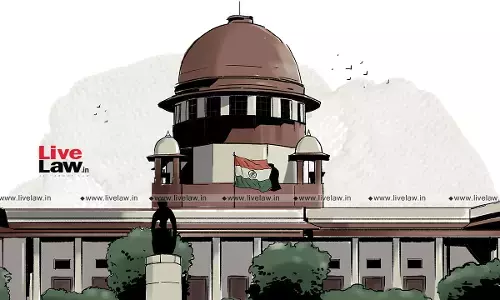Supreme Court Refuses To Entertain PIL To Bar Namesake Candidates From Elections
Gyanvi Khanna
3 May 2024 12:43 PM IST

Next Story
3 May 2024 12:43 PM IST
The Supreme Court (on May 03) dismissed as withdrawn a Public Interest Litigation seeking directions to bar namesake/duplicate candidates who deliberately contest elections as independent candidates to ruin the chances of other candidates.The petitioner sought directions to the Election Commission of India to scrutinise the background of namesake candidates and prevent them from contesting...
